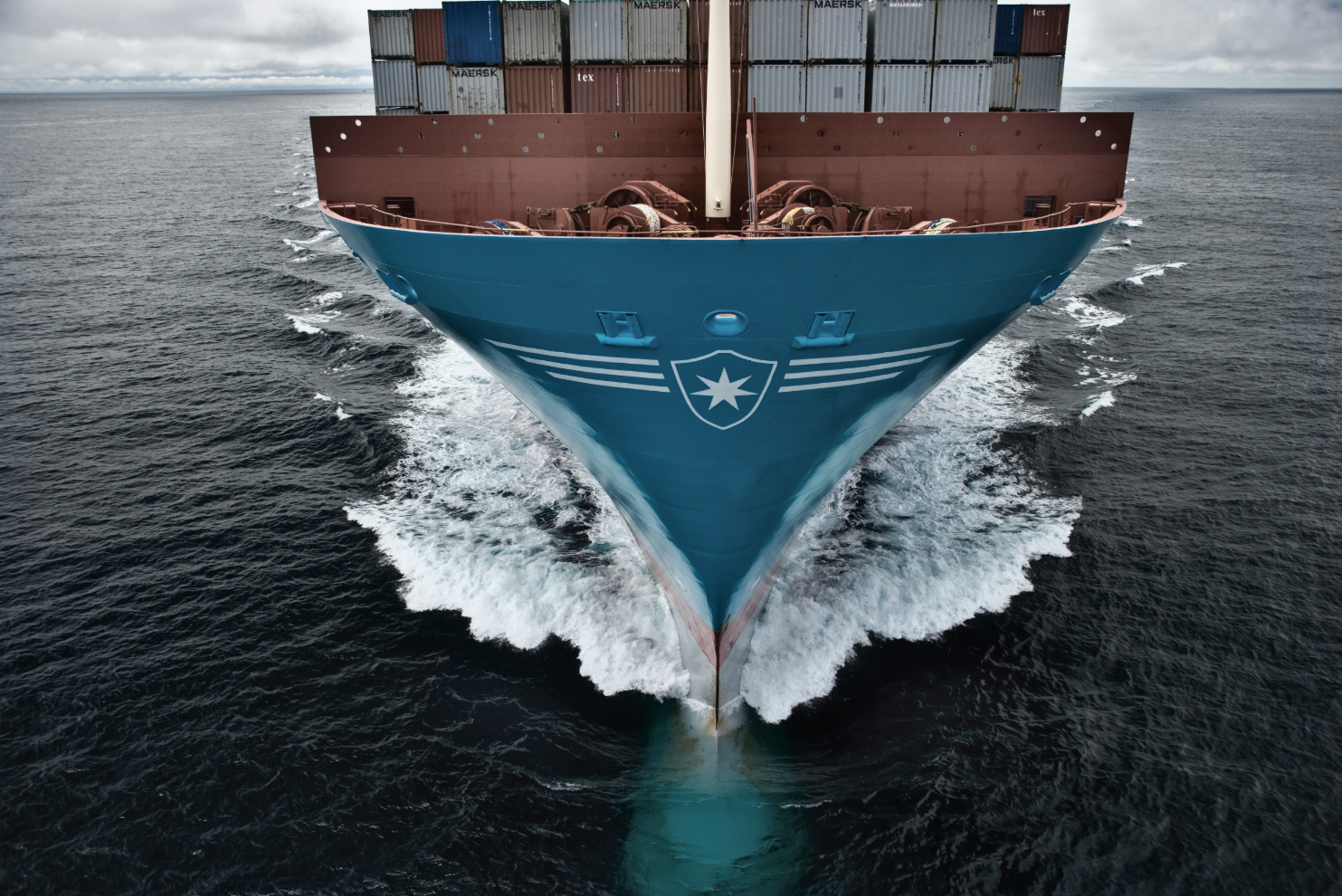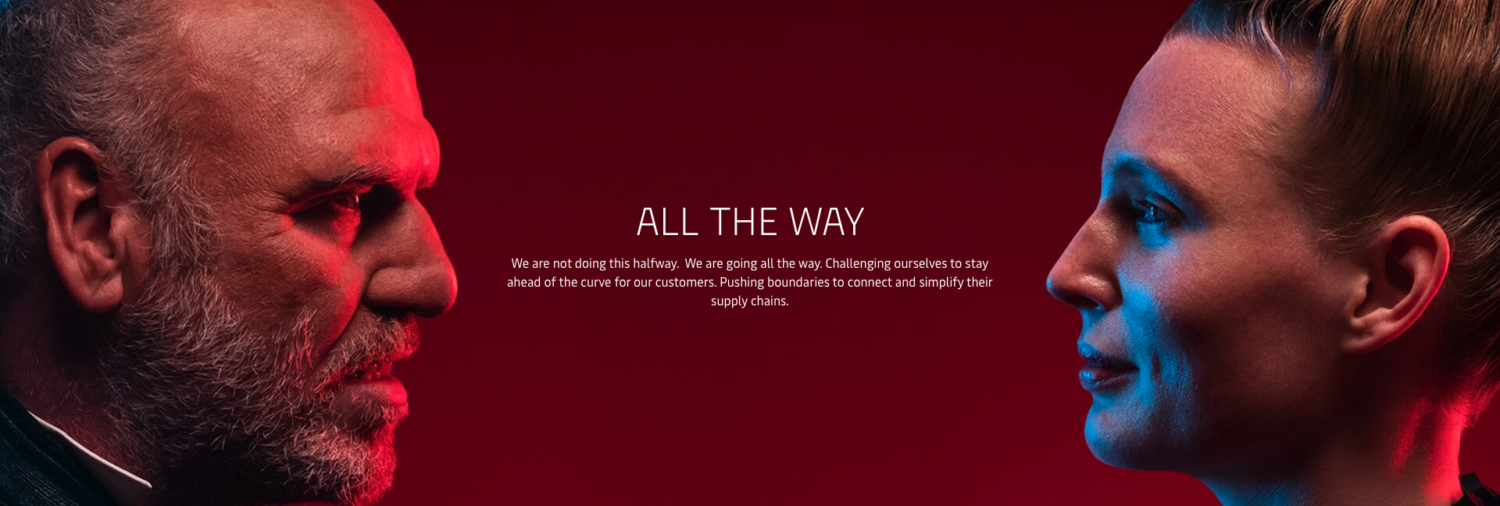Storytelling Close-up Maersk: Captain at Sea and Social Media
The Danish logistics group Maersk is the global market leader for container ships and ports. 88,000 employees work for the company, spread across 130 countries. One might think that logistics and containers are not very attractive topics for storytelling and social media. But if you take a look at Maersk’s channels, you’ll see otherwise. The company has over 3 million subscribers on Facebook, almost 80,000 followers on Twitter, over 145,000 subscribers on Instagram, over 570,000 on LinkedIn and over 50,000 users subscribe to the YouTube channel. In addition, it should be noted that these reachings were achieved entirely organically.
However, in 2010, Maersk had a completely different attitude towards the topic of public relations. For the most part, the company kept a low profile. They only actively communicated the bare minimum. Inquiries were often met with “no comment”. Let’s take a look at what the transformation to one of the most important storytellers in the logistics sector looks like today.

From a One-Man Show to a Social Media Newsroom
At the beginning, the company started its social media communication with just one employee, who took on a total of ten different channels. His approach was first and foremost to involve the community. A group called “The Shipping Circle” was set up on LinkedIn, where industry experts could exchange ideas. On Twitter, he listed local employees, from captains to managers, who could also contribute their stories to the official Twitter channel.
From the beginning, Maersk did not post stories proclaiming what a great shipping company they were, but rather showcased the voyages of individual ships or highlighted the captains of those ships. Even though it’s a B2B company, there’s this strong visual component of goods being transported through beautiful landscapes from one part of the world to another. That’s why they have an extensive archive with great photos and a rich history. In his first week as social media manager, John Wichmann found a digital archive at Maersk with over 14,000 photos of ships, seas and harbors. He took these and combined them with short stories. He established the hashtag #maersk on Instagram, which is still used today by all kinds of users under their posts when they spot a Maersk ship or container. Even if it has reduced somewhat these days, these posts have also been integrated into the official channel time and again. The CEO of Maersk even had a collage of such pictures hanging in his office.
Currently, some channels have been removed again, Pinterest for example. You can also see that Maersk is now producing content professionally and orchestrating it well across all channels. There is certainly more behind this than a one-man organization these days. But the content approaches are still similar. As a B2B company, Maersk has decided not to talk exclusively to its customers and employees. Instead, they appeal to the entire community of shipping companies and logistics, and generally anyone interested in large ships and containers. Increasingly, of course, with a stronger focus on digital topics and innovation in the shipping industry. Logistics. You can tell that the company is not interested in sales via social media, but above all in connecting with its audience.
Did you know that the main source to plastic in
the oceans originates from rivers? Congratulations @TheOceanCleanup
with your new invention extracting plastic from the rivers before it reaches
the oceans. #theoceancleanup https://t.co/kgFWYgMB0f— Maersk (@Maersk) November 8, 2019
Care & Uprightness – Living Values
One of the key pillars that has fundamentally changed Maersk’s communication is transparency and honesty. Around 2010, the company was still largely keeping a low profile. A story that illustrates the change in mindset is the one about a whale that was accidentally hit by a ship and killed. Certainly not an event that arouses sympathy. Nevertheless, Maersk decided to actively share this incident and report on it in dialog with the public. A Facebook post on the Maersk page not only drew attention to the event. It also served as a forum for discussing what Maersk could do in future to avoid such incidents. This generated over 240 comments, which included suggestions as well as condolences, acknowledging that it was an unfortunate accident. Unfortunately, we can no longer find these posts, but various media reports serve as witnesses.
But what does the status quo look like? If we take the central website as a starting point and move on to the individual channels and campaigns, we find many elements of brand storytelling. Whether on the homepage or the “About us” page, for example, the central motif is not necessarily a Maersk product or service, in other words not a ship or container. Instead, we see a plantation worker or a close-up of a guitar being produced. The heroes of the stories are therefore the products that will embark on their journey, or the producers behind them.
The New World – “Change” as a Driving Force
We also find a campaign called “All the way”. In this campaign, Maersk takes the side of “change”. A classic monster that stands in the way relates to our natural urge to maintain security. Both opponents face each other in a video.
It is interesting that Maersk does not actually tell what exactly is changing. It is more likely to be about preparing its employees and customers for upcoming changes, such as those brought about by digitalization or climate change. However, Maersk does not condemn the desire for security and stability, but shows understanding and also explains where this comes from in the first place. In addition, “All the way” as a claim naturally also has a nice double meaning that encompasses both the transport route and determination. At the same time, a lot of space is also devoted to Maersk’s 90-year history. The classic plot „ from rags to riches” is told with several chapters and vivid graphic elements.
It continues with the values that Maersk has communicated unaltered since its foundation. These are: Constant Care, Humbleness, Uprightness, Our Employees, Our Team. Each of these values is illustrated with examples from the team itself and explained by the CEO in a detailed interview.
Stories of Trade at the Heart of It all
Unfortunately, apart from a blog, there is less storytelling on the website itself. The language could also contain slightly fewer buzzwords. But on the social media channels, especially on YouTube and Instagram, the emotions are coming back. The campaign “The Heart of Trade” stands out here in particular. As already indicated in the central themes on the website, the focus is primarily on producers and their products and values. Maersk takes on the role of captain, not only in terms of its professions, but also in a storytelling perspective, bringing the international trade community together and showing them the way forward.
The protagonists are all personalities who can narrate their very own hero’s journey: from the operator of a flower farm in Africa, to the farmer who finds his way in a new, open Cuba, to two fishing sisters from Alaska who not only export wild salmon but have also developed their own fashion line. With a calm, nature-loving and optimistic tone, Maersk brings us closer to their stories and keeps itself discreetly in the background.
Share this article










